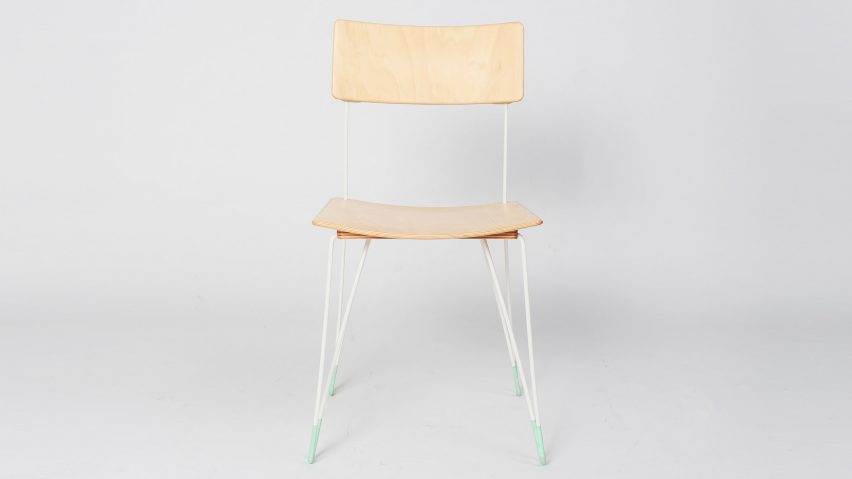
Heureka chair by Timo Spelleken can be assembled without tools, screws or adhesives
Recent graduate Timo Spelleken has designed a minimal flat-pack chair that can easily be assembled at home without tools, screws or adhesives.
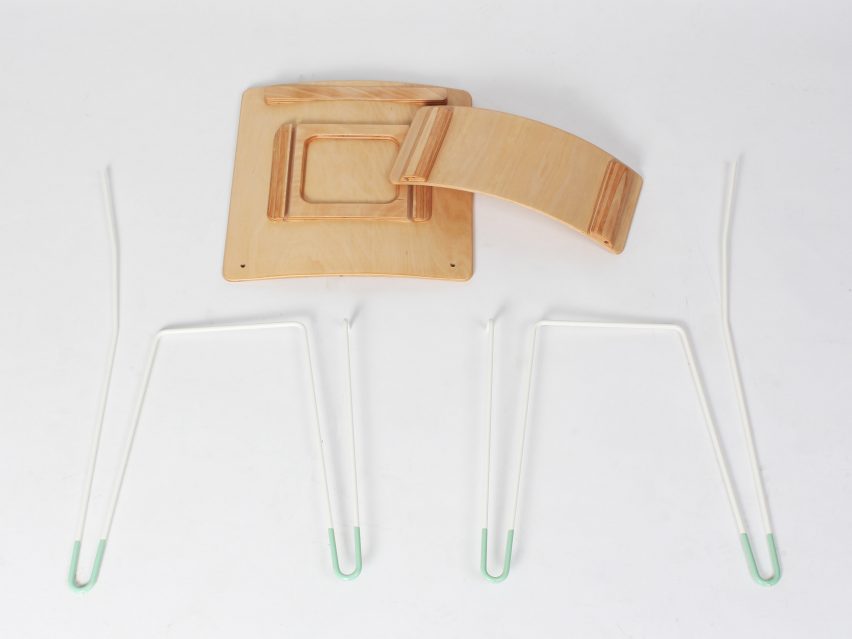
Instead, the Heureka chair – which was shown at Milan design week – has grooves in its back and base so that the timber elements can slot into place on the metal frame.
Spelleken specifically designed the chair with manufacturers in mind, attempting to make it as space-saving and easy to transport as possible. According to the designer, 60 unassembled chairs can be shipped on two standard-sized pallets.
The chair has a beechwood seat and back, and a stainless steel frame – materials chosen for their strength and durability. Colourful rubber feet complement the simple design.
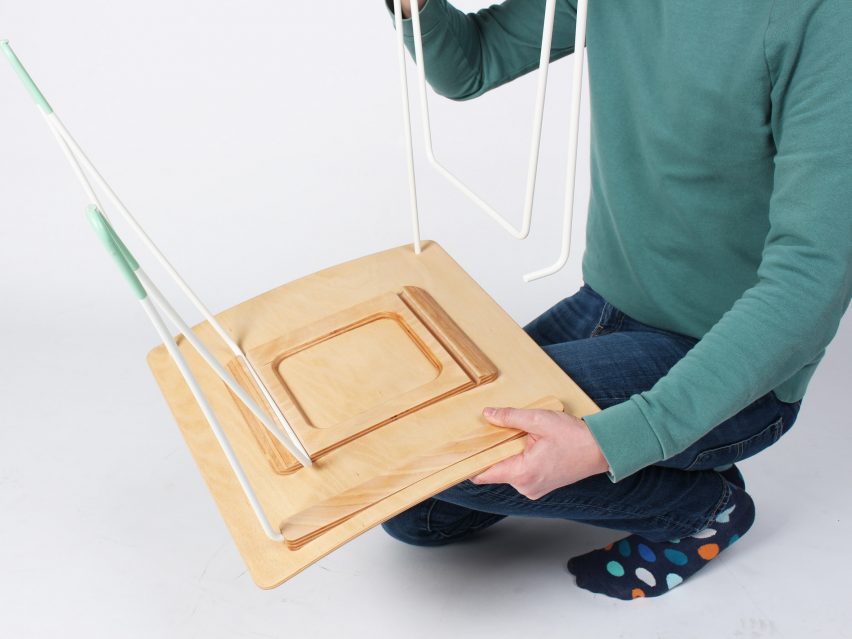
Flat-pack furniture has been undergoing a renaissance as brands have looked to lower transportation costs and pursue a market of "young urban dwellers". Last year's Milan design week saw new flat-pack products by Hans Horneman for Normann Copenhagen and the Bouroullec brothers for Hay.
Meanwhile, the master of the flat-pack, IKEA, has recently begun trialling furniture which snaps together in a matter of minutes, using a newly engineered joint called the wedge dowel.
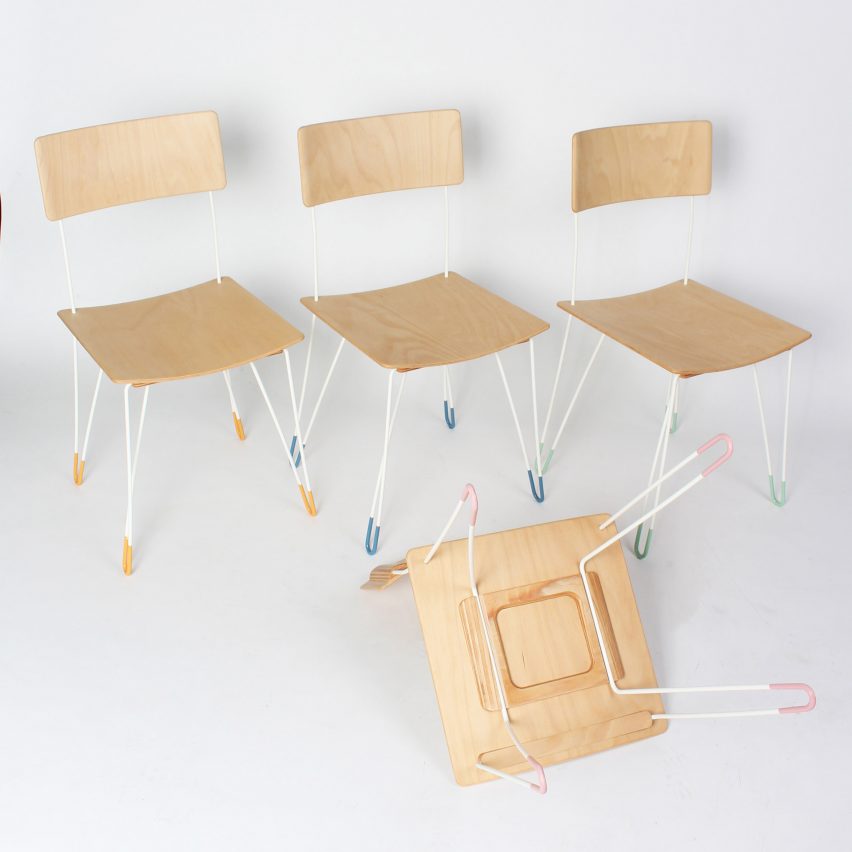
Spelleken's Heureka chair was one of the winners of the ein&zwanzig competition, exhibited annually in Milan design week. It celebrates innovation in product and interior design among recent graduates.
Other winners of the prize, judged by the German Design Council, include the Dune furniture collection by Lisa Ertel.
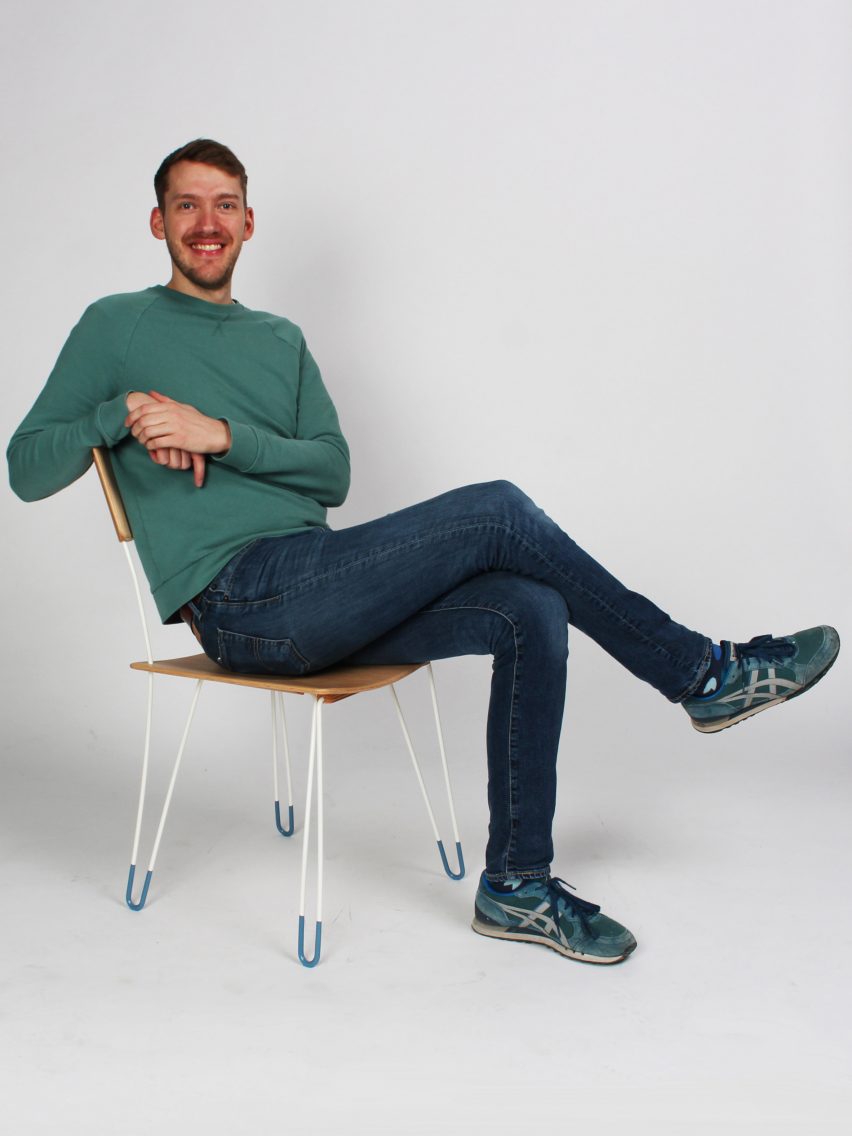
Spelleken has only recently ventured into furniture design, having previously trained as an electrician before studying product design at the University of Applied Science in Aachen. Other products include floor light A Gift, whose form is based on the gesture a person makes when presenting a gift, and Sun Chair 2.0, a stackable deck chair with a minimal footprint.
Other chairs shown during Milan design week, which ran from 4 to 9 April 2017, included Carlo Ratti's Swish stool for Cassina, which used digital processes in its design, and Philippe Starck's seating for Driade based on historic torture devices.